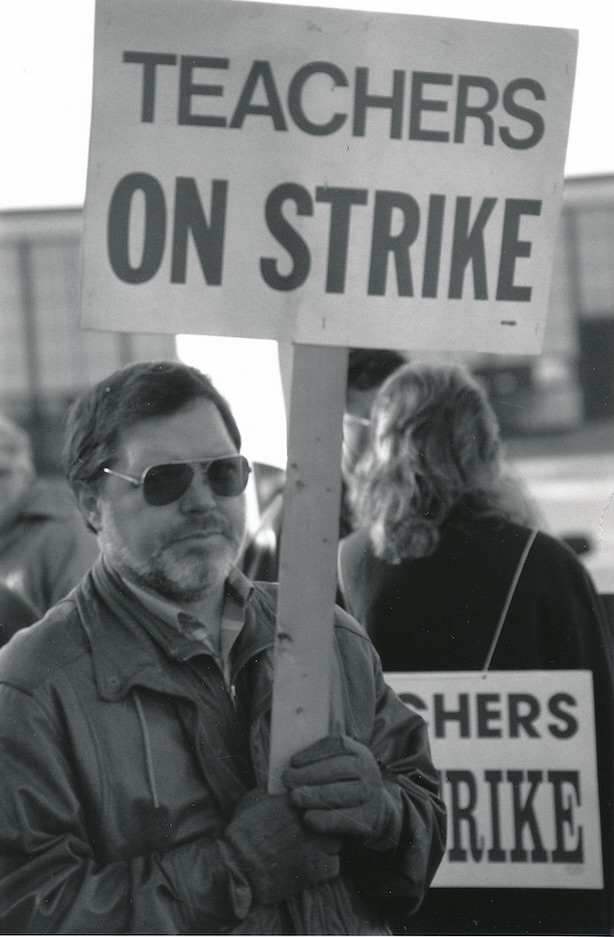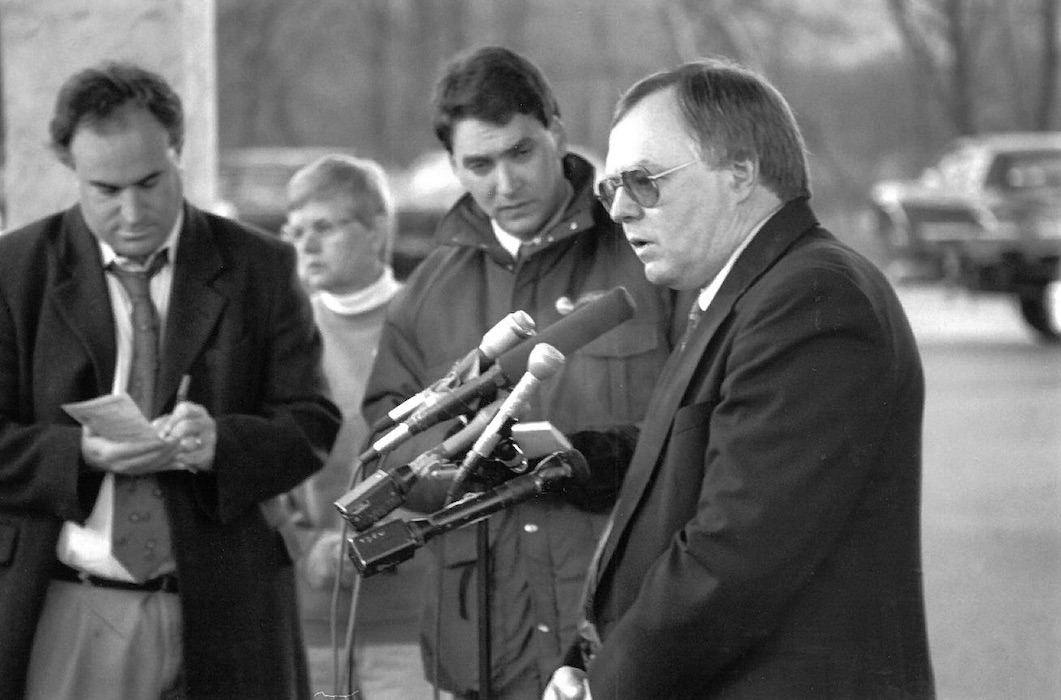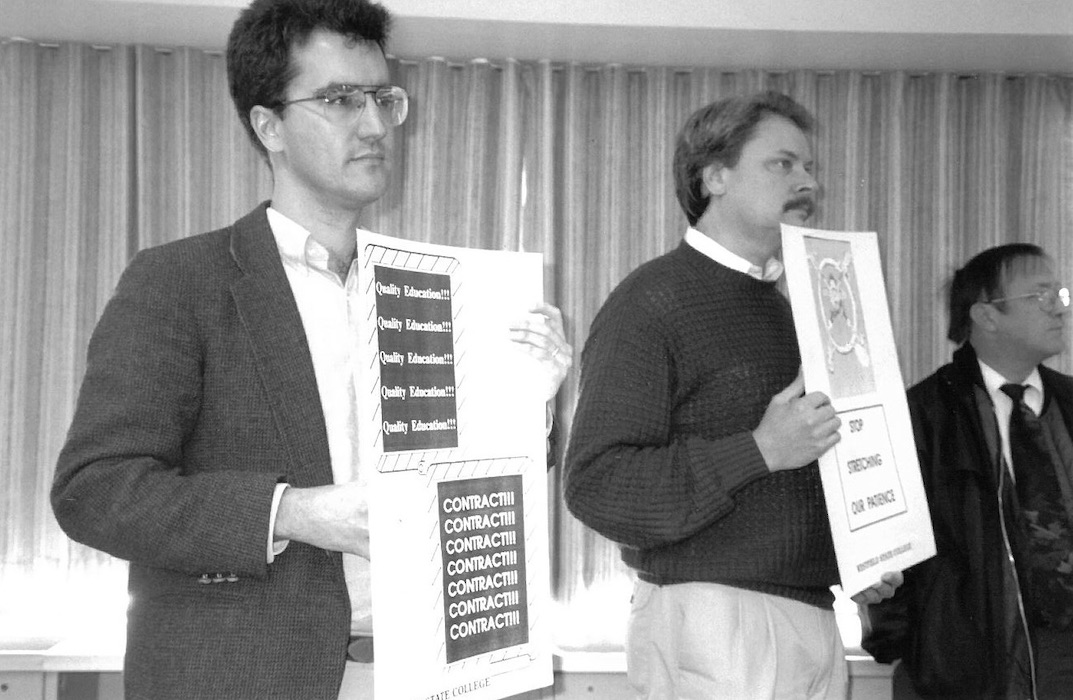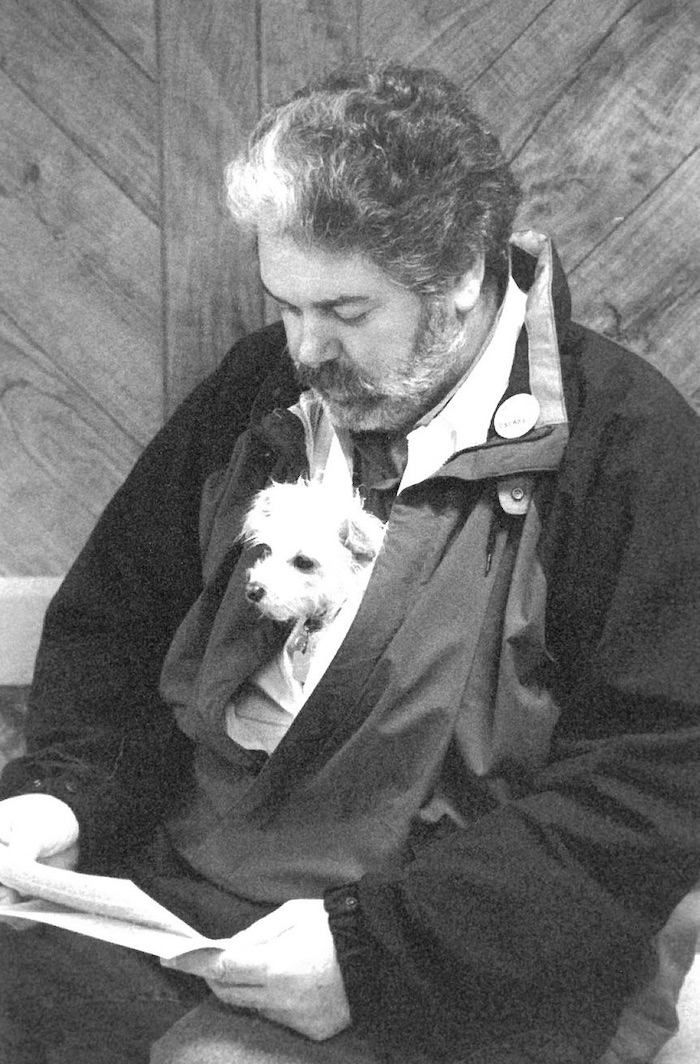Tewksbury
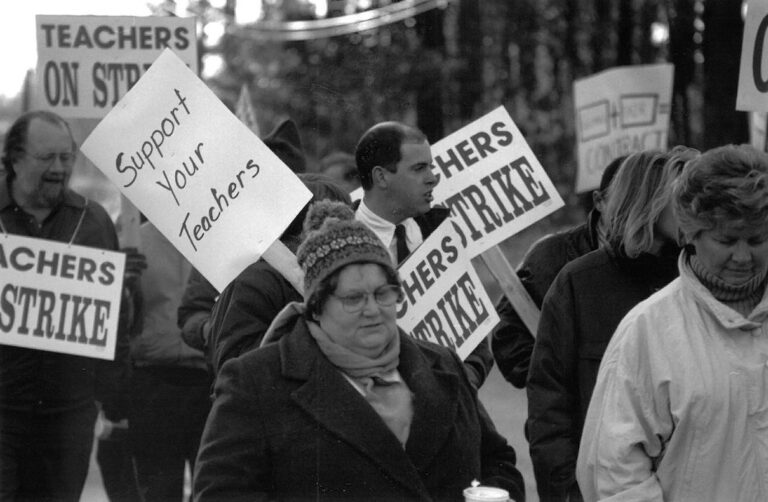
Canceled sessions and low-ball offer lead to Tewksbury strike
When Tewksbury teachers went on strike for seven days in 1994, MTA Today wrote, “No other group of public educators in Massachusetts has been forced to resort to striking more often than the Tewksbury Teachers Association.”
TTA members had previously struck for three days in 1985 and, in 1968, they had boycotted an orientation day after the School Committee unilaterally added a period to the junior high school work day. The latter was one of a handful of one-day work stoppages that preceded the first strike among MTA locals to impact a teaching day, the nine-day strike in New Bedford in 1969.
Trouble in 1994 began early on, when the School Committee “unilaterally canceled four of the six [bargaining] sessions” that had been scheduled during the summer, according to MTA Today. When the committee finally made an offer, it was for a one-year contract with zero raise, even though TTA members already had gone without raises in both the 1991-92 and 1992-93 school years.
The situation went from bad to worse, according to MTA Today, when one School Committee member characterized the teachers as lazy and greedy and invited them to “go to another town that pays more or go on strike.”
On Dec. 1, they did just that, voting by acclamation to strike. Over the next 11 days they picketed, demonstrated and leafletted the town. No teachers crossed the picket lines. A TTA rally on the evening of Dec.7 brought out supporters from more than 20 locals.
Finally, after lengthy mediation sessions, a settlement was reached that included a 3 percent raise, an additional professional development day at the per-diem rate, changes in the duty-free lunch schedule for elementary teachers, and increased longevity pay.
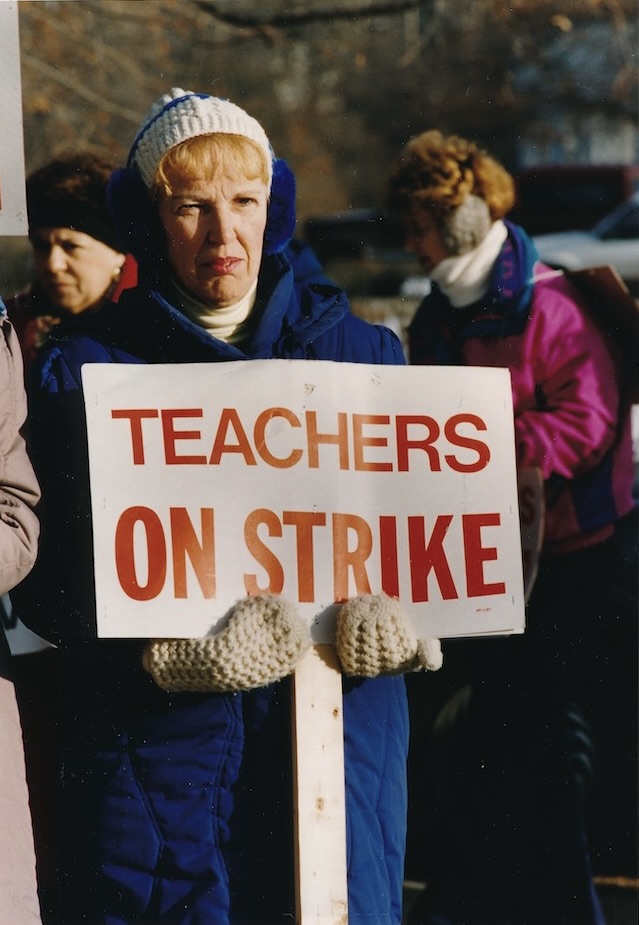
Teachers felt their backs were to the wall. Considering the outrageous treatment we’d received from the school committee, we knew we could not accept anything less than a fair contract.
Additional Photos

